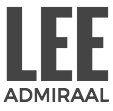The Myers-Briggs Personality Profile has historically been used by companies to select the best fit for a position from qualified candidates. This is a common tool in selecting the rank and file employee. But what about choosing a boss? How can the Myers-Briggs Type Indicator (MBTI) predict how well a person will perform in a position of leadership?
In the first place, any of the sixteen major types in Myers-Briggs personalities can make for a good leader, under the right circumstances. There are many styles of leadership appropriate to the time and circumstances of the organization in question. So it’s less about selecting the best set of profiles and more about evaluating a potential leader’s strong traits and assessing how well they will mesh with the kind of leadership needed.
The Role Of Each Major Type:
* Extroversion / Introversion
Naturally an Extrovert is the one with the “people skills.” If a leader is going to have to face the public, make speeches, be a media spokesperson, or be the face of a huge company, the warm, friendly Extrovert wins every time. More than likely it’s the Extroverts who go looking for leadership positions in the first place.
While the Introvert seems like a lesser choice, perhaps some leadership roles call for an introvert too. Someone who doesn’t make a lot of noise, isn’t called upon to make appearances, manages a very small start-up, or works better behind the scenes is likely to be better suited as an introvert. However, most leadership positions will usually require a more outgoing person.
* Sensing / Intuition
The Sensing individual is the pragmatic realist. Military roles, business-to-business industry, and other down-to-Earth trades call for the Sensing individual. You will want a high-Sensing score to be in charge of your stock brokerage, legal firm, mutual fund, lumber mill, construction project, and police precinct. The level-headed Sensing individual will lead you in a rock-steady direction, always conservative and never rocking the boat.
The Intuition candidate, as you might guess, is the starry-eyed visionary. Look for a Intuitive leader wherever you have a fast-paced environment, an industry that’s constantly changing, or a position that calls for a high degree of creativity. Nearly all technology companies hailing from Silicon Valley have Intuition leaders as their CEO. They need somebody who’s filled with hope for the future, eager to innovate, and enthusiastic about progress and change.
* Thinking / Feeling
The Thinker is the individual you want in charge when you want a dispassionate, logical leadership style. The rank and file of government and any largely bureaucratic organization thrives on Thinkers, as well as most industries associated with engineering. You want a Thinker to head your accounting department, census bureau, and nuclear power plant.
The Feeling individual makes decisions based more on other metrics than hard data, such as opinions, styles, trends, morals, and values. The Feeling individual has their place in the executive suite too, as the leader with a heart who will first take their responsibility to people seriously. Look to a Feeling leader to head your charity organization, Political Action Committee, scholarship fund, or public relations firm.
* Judging / Perceiving
The Judging individual leads “by the book.” They observe the letter of the law and the fine print of every rule book. Naturally, if your organization needs an inflexible leader who will fight to preserve the peace and order of the system, your best candidate is a Judging individual. Insurance industries and regulatory agencies all thrive with Judging individuals at the helm.
But not all industries need someone so inflexible. When you need somebody who can juggle multiple problems, turn on a dime in a new direction, let small details be swept under the rug, and wakes up every morning hoping for a new challenge, the Perceiving individual is your ideal candidate. This person is better at crisis management, disaster relief, or any adventurous position that needs somebody who can weather a storm. Just about every media organization wants a Perceiving individual, because modern media moves so fast and brings new surprises regularly.
The Majority Of Leaders’ Profiles
When in doubt, the “generic” perfect models for leadership positions may be the ENFJ. Here’s how that profile breaks down:
* E – Generally leaders have to deal with people and be able to communicate well, so most of the time you need an Extrovert.
* N – Intuition narrowly beats out Sensing here because the Intuition types see the big picture, which is what you probably prefer in a leader.
* F – Feeling is needed more than Thinking in most leadership cases, because these are the empathic people who will focus on how their actions affect everyone else.
* J – Judging individuals are the most prudent at keeping order and planning things out; very seldom will you need a spontaneous, impulsive leader.
As always, remember that personalities are fluid and the rules of the Myers-Briggs test make only a recommendation, not a mandatory law. Use these guidelines as a rule of thumb in considering people for leadership positions.

